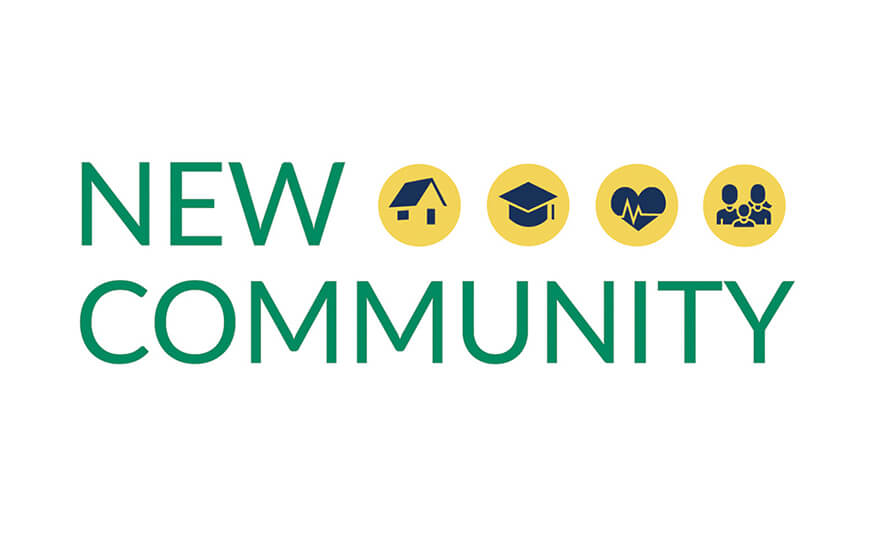SAIF
973-286-2823
274 South Orange Avenue
4th Floor
Newark, NJ 07103
The Supportive Assistance to Individuals and Families (SAIF) program for TANF recipients is funded by the New Jersey Department of Human Services Division of Family Development. The SAIF program has provided intensive case management to individuals who have reached their 60-month limit on welfare since Oct. 1, 2003. The goal is to move them completely to self-sufficiency or to an exemption category that will lead to them to the appropriate support services program.
SAIF was developed to create a safety net for those families and individuals who exhausted their five-year time limit on welfare (WorkFirst NJ) and do not meet the criteria for an exemption to the time limit. (Exemptions are given to people who are permanently disabled, sole caretakers of a disabled dependent, chronically unemployable, over age 60 or victims of family violence.)
The SAIF Program continues today to provide intensive care management to families to determine the reasons for them still needing to receive welfare benefits and acquaint them with support services that will assist them with every opportunity to successfully transition from welfare to work. The SAIF intensive case managers’ (ICMs) two primary goals are: (1) to determine whether the SAIF participant is eligible for exemption from the WFNJ time limits and assist them in obtaining the exemption and any additional social services that are needed and (2) work with the SAIF participants not eligible for exemption to leave public assistance and improve their quality of life.
Our Success
The Gateway-To-Work offers linkages to jobs and support services that will provide a means to overcome barriers to successful employment and toward self-sufficiency. Gateway has completed a comprehensive study to determine the return on investment to the community when an individual is moved from welfare to work. For every dollar spent on delivering services, there is a 400 percent return on investment to the community, in terms of public spending avoided and taxes and income generated by participants in the program. Specifically, for every $1 spent on Gateway-To-Work, the program’s Associates returned an average of $4.24 to the community in the form of wages earned, state and federal income taxes, Social Security taxes and sales taxes in addition to public spending avoided because participants no longer require welfare cash assistance, food stamps, general assistance and Medicaid.
Gateway-To-Work
New Community’s Gateway-To-Work is the largest welfare-to-work program in New Jersey, serving more than 2,000 people annually. Gateway uses a rapid transition to work model, stressing job readiness and employability skills. The program has forged a series of innovative partnerships and productive relationships with potential employers. Gateway-To-Work utilizes the following key elements with regard to training:
- Holistic
- Comprehensive Approach
- Customer Focused Approach
- Operations Structured Around Intensive Case Management
- Job Placement Innovations
- Specialized Initiatives
In an effort to reinforce the culture of change brought about by welfare reform, the Gateway-To-Work program refers to all WorkFirst NJ (WFNJ) participants as Associates. This change in nomenclature immediately signals to everyone that Gateway-to-Work is about moving people into the workforce toward self-sufficiency and discouraging previous attitudes of dependency.
The goal of Gateway-To-Work is to provide a total continuum of services including comprehensive job readiness and employability skills training activities focused on rapid attachment to the workforce, job placement and retention, and assistance to overcome the multiple barriers that Associates often encounter. The program has forged a series of innovative partnerships and productive relationships with potential employers.
Job Placement Services
The Gateway-To-Work approach to employment services includes: meeting with all potential employers that have job openings and identifying and linking the Associates to appropriate, available and accessible employment.
Counseling and Post-Program Services
Intensive case management services are provided to everyone enrolled in the program. This includes assigning participants to a Job-Plus Coordinator, who works directly with each Gateway-To-Work’s Associate to assist them in providing support services to help alleviate barriers that would prohibit them from employment while they are in the program. Follow-up and post-employment support services are also provided by the Job Plus Coordinator to our employed Associates after training.

